FRI SEP 12TH | Spread | Total | Moneyline |
|---|---|---|---|
12:15AM  WAS Commanders | +1.5 −108 | O 48.5 −110 | +105 |
12:15AM  GB Packers | -1.5 −112 | U 48.5 −110 | −125 |
SUN SEP 14TH | Spread | Total | Moneyline |
|---|---|---|---|
5:00PM 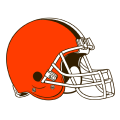 CLE Browns | +12.5 −110 | O 44.5 −110 | +455 |
5:00PM 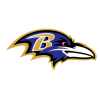 BAL Ravens | -12.5 −110 | U 44.5 −110 | −625 |
5:00PM 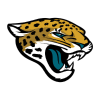 JAX Jaguars | +5.5 −110 | O 49.5 −105 | +185 |
5:00PM 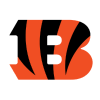 CIN Bengals | -5.5 −110 | U 49.5 −115 | −225 |
5:00PM 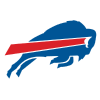 BUF Bills | -8.5 −110 | O 44.5 −110 | −395 |
5:00PM  NY Jets | +8.5 −110 | U 44.5 −110 | +310 |
5:00PM 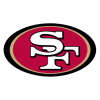 SF 49ers | -7 −110 | O 44.5 −110 | −345 |
5:00PM  NO Saints | +7 −110 | U 44.5 −110 | +275 |
5:00PM  CHI Bears | +4.5 −105 | O 48.5 −110 | +180 |
5:00PM 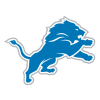 DET Lions | -4.5 −115 | U 48.5 −110 | −218 |
5:00PM  LA Rams | -5.5 −110 | O 45.5 −110 | −225 |
5:00PM 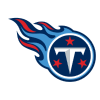 TEN Titans | +5.5 −110 | U 45.5 −110 | +185 |
5:00PM 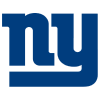 NY Giants | +4.5 −118 | O 44.5 −110 | +154 |
5:00PM 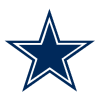 DAL Cowboys | -4.5 −102 | U 44.5 −110 | −185 |
5:00PM 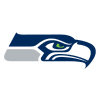 SEA Seahawks | +1.5 −110 | O 42.5 −110 | +100 |
5:00PM 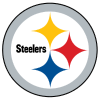 PIT Steelers | -1.5 −110 | U 42.5 −110 | −120 |
5:00PM  NE Patriots | +2.5 −110 | O 45.5 −110 | +120 |
5:00PM 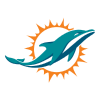 MIA Dolphins | -2.5 −110 | U 45.5 −110 | −142 |
8:05PM 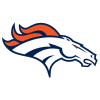 DEN Broncos | -3.5 −110 | O 44.5 −110 | −175 |
8:05PM 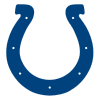 IND Colts | +3.5 −110 | U 44.5 −110 | +145 |
8:05PM  CAR Panthers | +4.5 −110 | O 46.5 −110 | +164 |
8:05PM  ARI Cardinals | -4.5 −110 | U 46.5 −110 | −198 |
8:25PM 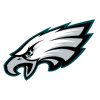 PHI Eagles | +1.5 −110 | O 45.5 −110 | +100 |
8:25PM  KC Chiefs | -1.5 −110 | U 45.5 −110 | −120 |
MON SEP 15TH | Spread | Total | Moneyline |
|---|---|---|---|
12:20AM  ATL Falcons | +4.5 −110 | O 45.5 −110 | +170 |
12:20AM 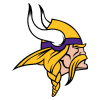 MIN Vikings | -4.5 −110 | U 45.5 −110 | −205 |
11:00PM  TB Buccaneers | +1.5 −112 | O 46.5 −110 | +100 |
11:00PM 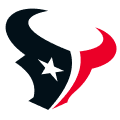 HOU Texans | -1.5 −108 | U 46.5 −110 | −120 |
TUE SEP 16TH | Spread | Total | Moneyline |
|---|---|---|---|
2:00AM 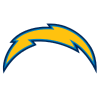 LA Chargers | -3 −110 | O 44.5 −110 | −148 |
2:00AM  LV Raiders | +3 −110 | U 44.5 −110 | +124 |
FRI SEP 19TH | Spread | Total | Moneyline |
|---|---|---|---|
12:15AM  MIA Dolphins | +8.5 −110 | O 48.5 −110 | +310 |
12:15AM  BUF Bills | -8.5 −110 | U 48.5 −110 | −395 |
SUN SEP 21ST | Spread | Total | Moneyline |
|---|---|---|---|
5:00PM  HOU Texans | -1.5 −108 | O 46.5 −110 | −120 |
5:00PM  JAX Jaguars | +1.5 −112 | U 46.5 −110 | +100 |
5:00PM  ATL Falcons | +1.5 −112 | O 46.5 −110 | +100 |
5:00PM  CAR Panthers | -1.5 −108 | U 46.5 −110 | −120 |
5:00PM  GB Packers | -5.5 −120 | O 43.5 −105 | −245 |
5:00PM  CLE Browns | +5.5 +100 | U 43.5 −115 | +200 |
5:00PM  LV Raiders | +7.5 −110 | O 47.5 −110 | +270 |
5:00PM  WAS Commanders | -7.5 −110 | U 47.5 −110 | −340 |
5:00PM  PIT Steelers | +1.5 −110 | O 43.5 −110 | +100 |
5:00PM  NE Patriots | -1.5 −110 | U 43.5 −110 | −120 |
5:00PM  CIN Bengals | +1.5 −115 | O 47.5 −115 | +100 |
5:00PM  MIN Vikings | -1.5 −105 | U 47.5 −105 | −120 |
5:00PM  LA Rams | +4.5 −105 | O 46.5 −110 | +170 |
5:00PM  PHI Eagles | -4.5 −115 | U 46.5 −110 | −205 |
5:00PM  NY Jets | +7.5 −110 | O 45.5 −110 | +270 |
5:00PM  TB Buccaneers | -7.5 −110 | U 45.5 −110 | −340 |
5:00PM  IND Colts | +1.5 −110 | O 45.5 −105 | +102 |
5:00PM  TEN Titans | -1.5 −110 | U 45.5 −115 | −122 |
8:05PM  NO Saints | +6.5 −105 | O 43.5 −110 | +210 |
8:05PM  SEA Seahawks | -6.5 −115 | U 43.5 −110 | −258 |
8:05PM  DEN Broncos | +1.5 −110 | O 44.5 −110 | +100 |
8:05PM  LA Chargers | -1.5 −110 | U 44.5 −110 | −120 |
8:25PM  DAL Cowboys | +3 −110 | O 47.5 −110 | +130 |
8:25PM  CHI Bears | -3 −110 | U 47.5 −110 | −155 |
8:25PM  ARI Cardinals | +3.5 −105 | O 47.5 −115 | +154 |
8:25PM  SF 49ers | -3.5 −115 | U 47.5 −105 | −185 |
MON SEP 22ND | Spread | Total | Moneyline |
|---|---|---|---|
12:20AM  KC Chiefs | -6.5 −110 | O 43.5 −110 | −278 |
12:20AM  NY Giants | +6.5 −110 | U 43.5 −110 | +225 |
TUE SEP 23RD | Spread | Total | Moneyline |
|---|---|---|---|
12:15AM  DET Lions | +3.5 −105 | O 49.5 −110 | +150 |
12:15AM  BAL Ravens | -3.5 −115 | U 49.5 −110 | −180 |
FRI SEP 26TH | Spread | Total | Moneyline |
|---|---|---|---|
12:15AM  SEA Seahawks | +2.5 −112 | O 46.5 −110 | +110 |
12:15AM  ARI Cardinals | -2.5 −108 | U 46.5 −110 | −130 |
SUN SEP 28TH | Spread | Total | Moneyline |
|---|---|---|---|
1:30PM  MIN Vikings | -1.5 −110 | O 42.5 −110 | −120 |
1:30PM  PIT Steelers | +1.5 −110 | U 42.5 −110 | +100 |
5:00PM  WAS Commanders | -3.5 −105 | O 48.5 −115 | −175 |
5:00PM  ATL Falcons | +3.5 −115 | U 48.5 −105 | +145 |
5:00PM  PHI Eagles | -2.5 −110 | O 48.5 −110 | −130 |
5:00PM  TB Buccaneers | +2.5 −110 | U 48.5 −110 | +110 |
5:00PM  NO Saints | +12.5 −110 | O 46.5 −110 | +455 |
5:00PM  BUF Bills | -12.5 −110 | U 46.5 −110 | −625 |
5:00PM  CLE Browns | +10.5 −112 | O 45.5 −110 | +380 |
5:00PM  DET Lions | -10.5 −108 | U 45.5 −110 | −500 |
5:00PM  LA Chargers | -3.5 −110 | O 43.5 −110 | −175 |
5:00PM  NY Giants | +3.5 −110 | U 43.5 −110 | +145 |
5:00PM  TEN Titans | +6 −110 | O 44.5 −110 | +195 |
5:00PM  HOU Texans | -6 −110 | U 44.5 −110 | −238 |
5:00PM  CAR Panthers | +3.5 −105 | O 45.5 −110 | +145 |
5:00PM  NE Patriots | -3.5 −115 | U 45.5 −110 | −175 |
8:05PM  JAX Jaguars | +5.5 −112 | O 48.5 −110 | +185 |
8:05PM  SF 49ers | -5.5 −108 | U 48.5 −110 | −225 |
8:05PM  IND Colts | +6.5 −110 | O 46.5 −110 | +235 |
8:05PM  LA Rams | -6.5 −110 | U 46.5 −110 | −290 |
8:25PM  BAL Ravens | +1.5 −112 | O 48.5 −112 | +102 |
8:25PM  KC Chiefs | -1.5 −108 | U 48.5 −108 | −122 |
8:25PM  CHI Bears | -1.5 −110 | O 45.5 −110 | −120 |
8:25PM  LV Raiders | +1.5 −110 | U 45.5 −110 | +100 |
MON SEP 29TH | Spread | Total | Moneyline |
|---|---|---|---|
12:20AM  GB Packers | -1.5 −112 | O 47.5 −110 | −120 |
12:20AM  DAL Cowboys | +1.5 −108 | U 47.5 −110 | +100 |
11:15PM  NY Jets | +5.5 −110 | O 44.5 −110 | +185 |
11:15PM  MIA Dolphins | -5.5 −110 | U 44.5 −110 | −225 |
TUE SEP 30TH | Spread | Total | Moneyline |
|---|---|---|---|
12:15AM  CIN Bengals | +2.5 −110 | O 47.5 −112 | +114 |
12:15AM  DEN Broncos | -2.5 −110 | U 47.5 −108 | −135 |
FRI OCT 3RD | Spread | Total | Moneyline |
|---|---|---|---|
12:15AM  SF 49ers | +1.5 −110 | O 47.5 −110 | +102 |
12:15AM  LA Rams | -1.5 −110 | U 47.5 −110 | −122 |
SUN OCT 5TH | Spread | Total | Moneyline |
|---|---|---|---|
1:30PM  MIN Vikings | -7 −115 | O 41.5 −110 | −340 |
1:30PM  CLE Browns | +7 −105 | U 41.5 −110 | +270 |
5:00PM  LV Raiders | +1.5 −110 | O 44.5 −112 | +102 |
5:00PM  IND Colts | -1.5 −110 | U 44.5 −108 | −122 |
5:00PM  DAL Cowboys | -1.5 −110 | O 44.5 −110 | −120 |
5:00PM  NY Jets | +1.5 −110 | U 44.5 −110 | +100 |
5:00PM  HOU Texans | +7.5 −115 | O 47.5 −110 | +270 |
5:00PM  BAL Ravens | -7.5 −105 | U 47.5 −110 | −340 |
5:00PM  NY Giants | -1.5 −110 | O 42.5 −110 | −122 |
5:00PM  NO Saints | +1.5 −110 | U 42.5 −110 | +102 |
5:00PM  DEN Broncos | +4.5 −110 | O 45.5 −110 | +164 |
5:00PM  PHI Eagles | -4.5 −110 | U 45.5 −110 | −198 |
5:00PM  MIA Dolphins | -1.5 −108 | O 46.5 −110 | −122 |
5:00PM  CAR Panthers | +1.5 −112 | U 46.5 −110 | +102 |
8:05PM  TEN Titans | +5.5 −110 | O 46.5 −110 | +180 |
8:05PM  ARI Cardinals | -5.5 −110 | U 46.5 −110 | −218 |
8:05PM  TB Buccaneers | -1.5 −108 | O 47.5 −110 | −122 |
8:05PM  SEA Seahawks | +1.5 −112 | U 47.5 −110 | +102 |
8:25PM  WAS Commanders | +1.5 −115 | O 47.5 −112 | +102 |
8:25PM  LA Chargers | -1.5 −105 | U 47.5 −108 | −122 |
8:25PM  DET Lions | -1.5 −105 | O 50.5 −110 | −118 |
8:25PM  CIN Bengals | +1.5 −115 | U 50.5 −110 | −102 |
MON OCT 6TH | Spread | Total | Moneyline |
|---|---|---|---|
12:20AM  NE Patriots | +8.5 −110 | O 46.5 −110 | +295 |
12:20AM  BUF Bills | -8.5 −110 | U 46.5 −110 | −375 |
TUE OCT 7TH | Spread | Total | Moneyline |
|---|---|---|---|
12:15AM  KC Chiefs | -4.5 −112 | O 47.5 −110 | −218 |
12:15AM  JAX Jaguars | +4.5 −108 | U 47.5 −110 | +180 |
FRI OCT 10TH | Spread | Total | Moneyline |
|---|---|---|---|
12:15AM  PHI Eagles | -7 −110 | O 43.5 −110 | −310 |
12:15AM  NY Giants | +7 −110 | U 43.5 −110 | +250 |
SUN OCT 12TH | Spread | Total | Moneyline |
|---|---|---|---|
1:30PM  DEN Broncos | -6.5 −110 | O 42.5 −110 | −285 |
1:30PM  NY Jets | +6.5 −110 | U 42.5 −110 | +230 |
5:00PM  CLE Browns | +6.5 −115 | O 42.5 −110 | +225 |
5:00PM  PIT Steelers | -6.5 −105 | U 42.5 −110 | −278 |
5:00PM  LA Chargers | -2.5 −112 | O 45.5 −110 | −155 |
5:00PM  MIA Dolphins | +2.5 −108 | U 45.5 −110 | +130 |
5:00PM  DAL Cowboys | -1.5 −108 | O 46.5 −110 | −122 |
5:00PM  CAR Panthers | +1.5 −112 | U 46.5 −110 | +102 |
5:00PM  ARI Cardinals | -1.5 −110 | O 47.5 −108 | −120 |
5:00PM  IND Colts | +1.5 −110 | U 47.5 −112 | +100 |
5:00PM  LA Rams | +5.5 −108 | O 48.5 −110 | +190 |
5:00PM  BAL Ravens | -5.5 −112 | U 48.5 −110 | −230 |
5:00PM  SF 49ers | +1.5 −110 | O 48.5 −115 | +102 |
5:00PM  TB Buccaneers | -1.5 −110 | U 48.5 −105 | −122 |
5:00PM  SEA Seahawks | +1.5 −112 | O 46.5 −110 | +100 |
5:00PM  JAX Jaguars | -1.5 −108 | U 46.5 −110 | −120 |
8:05PM  TEN Titans | +3 −105 | O 44.5 −110 | +136 |
8:05PM  LV Raiders | -3 −115 | U 44.5 −110 | −162 |
8:25PM  NE Patriots | -3 −110 | O 43.5 −110 | −166 |
8:25PM  NO Saints | +3 −110 | U 43.5 −110 | +140 |
8:25PM  CIN Bengals | +3 −110 | O 48.5 −115 | +130 |
8:25PM  GB Packers | -3 −110 | U 48.5 −105 | −155 |
MON OCT 13TH | Spread | Total | Moneyline |
|---|---|---|---|
12:20AM  DET Lions | +3 −115 | O 48.5 −110 | +130 |
12:20AM  KC Chiefs | -3 −105 | U 48.5 −110 | −155 |
11:15PM  BUF Bills | -5.5 −110 | O 48.5 −110 | −225 |
11:15PM  ATL Falcons | +5.5 −110 | U 48.5 −110 | +185 |
TUE OCT 14TH | Spread | Total | Moneyline |
|---|---|---|---|
12:15AM  CHI Bears | +4.5 −115 | O 48.5 −110 | +164 |
12:15AM  WAS Commanders | -4.5 −105 | U 48.5 −110 | −198 |
FRI OCT 17TH | Spread | Total | Moneyline |
|---|---|---|---|
12:15AM  PIT Steelers | +4.5 −110 | O 46.5 −110 | +180 |
12:15AM  CIN Bengals | -4.5 −110 | U 46.5 −110 | −218 |
SUN OCT 19TH | Spread | Total | Moneyline |
|---|---|---|---|
1:30PM  LA Rams | -3.5 −110 | O 47.5 −110 | −175 |
1:30PM  JAX Jaguars | +3.5 −110 | U 47.5 −110 | +145 |
5:00PM  MIA Dolphins | -1.5 −110 | O 43.5 −110 | −120 |
5:00PM  CLE Browns | +1.5 −110 | U 43.5 −110 | +100 |
5:00PM  PHI Eagles | -3 −115 | O 44.5 −115 | −162 |
5:00PM  MIN Vikings | +3 −105 | U 44.5 −105 | +136 |
5:00PM  NO Saints | +7.5 −110 | O 44.5 −110 | +260 |
5:00PM  CHI Bears | -7.5 −110 | U 44.5 −110 | −325 |
5:00PM  NE Patriots | -1.5 −110 | O 44.5 −110 | −120 |
5:00PM  TEN Titans | +1.5 −110 | U 44.5 −110 | +100 |
5:00PM  LV Raiders | +9.5 −110 | O 45.5 −110 | +330 |
5:00PM  KC Chiefs | -9.5 −110 | U 45.5 −110 | −425 |
5:00PM  CAR Panthers | +1.5 −112 | O 43.5 −110 | +102 |
5:00PM  NY Jets | -1.5 −108 | U 43.5 −110 | −122 |
8:05PM  NY Giants | +7.5 −112 | O 42.5 −110 | +260 |
8:05PM  DEN Broncos | -7.5 −108 | U 42.5 −110 | −325 |
8:05PM  IND Colts | +6 −110 | O 45.5 −110 | +200 |
8:05PM  LA Chargers | -6 −110 | U 45.5 −110 | −245 |
8:25PM  GB Packers | -1.5 −110 | O 47.5 −110 | −122 |
8:25PM  ARI Cardinals | +1.5 −110 | U 47.5 −110 | +102 |
8:25PM  WAS Commanders | -2.5 −110 | O 48.5 −115 | −135 |
8:25PM  DAL Cowboys | +2.5 −110 | U 48.5 −105 | +114 |
MON OCT 20TH | Spread | Total | Moneyline |
|---|---|---|---|
12:20AM  ATL Falcons | +6.5 −110 | O 47.5 −105 | +215 |
12:20AM  SF 49ers | -6.5 −110 | U 47.5 −115 | −265 |
11:00PM  TB Buccaneers | +3.5 −110 | O 49.5 −110 | +154 |
11:00PM  DET Lions | -3.5 −110 | U 49.5 −110 | −185 |
TUE OCT 21ST | Spread | Total | Moneyline |
|---|---|---|---|
2:00AM  HOU Texans | +1.5 −110 | O 44.5 −110 | +102 |
2:00AM  SEA Seahawks | -1.5 −110 | U 44.5 −110 | −122 |
FRI OCT 24TH | Spread | Total | Moneyline |
|---|---|---|---|
12:15AM  MIN Vikings | +3 −110 | O 44.5 −110 | +124 |
12:15AM  LA Chargers | -3 −110 | U 44.5 −110 | −148 |
SUN OCT 26TH | Spread | Total | Moneyline |
|---|---|---|---|
5:00PM  CLE Browns | +5.5 −108 | O 42.5 −108 | +180 |
5:00PM  NE Patriots | -5.5 −112 | U 42.5 −112 | −218 |
5:00PM  NY Giants | +10.5 −110 | O 43.5 −110 | +390 |
5:00PM  PHI Eagles | -10.5 −110 | U 43.5 −110 | −520 |
5:00PM  CHI Bears | +7 −110 | O 48.5 −110 | +245 |
5:00PM  BAL Ravens | -7 −110 | U 48.5 −110 | −305 |
5:00PM  MIA Dolphins | +1.5 −110 | O 46.5 −110 | +102 |
5:00PM  ATL Falcons | -1.5 −110 | U 46.5 −110 | −122 |
5:00PM  NY Jets | +7.5 −110 | O 45.5 −110 | +270 |
5:00PM  CIN Bengals | -7.5 −110 | U 45.5 −110 | −340 |
5:00PM  BUF Bills | -7 −110 | O 47.5 −110 | −305 |
5:00PM  CAR Panthers | +7 −110 | U 47.5 −110 | +245 |
5:00PM  SF 49ers | -1.5 −108 | O 45.5 −115 | −120 |
5:00PM  HOU Texans | +1.5 −112 | U 45.5 −105 | +100 |
8:05PM  TB Buccaneers | -5.5 −112 | O 45.5 −112 | −218 |
8:05PM  NO Saints | +5.5 −108 | U 45.5 −108 | +180 |
8:25PM  TEN Titans | +3.5 −110 | O 44.5 −110 | +145 |
8:25PM  IND Colts | -3.5 −110 | U 44.5 −110 | −175 |
8:25PM  DAL Cowboys | +4.5 −110 | O 45.5 −110 | +164 |
8:25PM  DEN Broncos | -4.5 −110 | U 45.5 −110 | −198 |
MON OCT 27TH | Spread | Total | Moneyline |
|---|---|---|---|
12:20AM  GB Packers | -1.5 −110 | O 44.5 −110 | −120 |
12:20AM  PIT Steelers | +1.5 −110 | U 44.5 −110 | +100 |
TUE OCT 28TH | Spread | Total | Moneyline |
|---|---|---|---|
12:15AM  WAS Commanders | +3.5 −105 | O 48.5 −110 | +160 |
12:15AM  KC Chiefs | -3.5 −115 | U 48.5 −110 | −192 |
FRI OCT 31ST | Spread | Total | Moneyline |
|---|---|---|---|
12:15AM  BAL Ravens | -5.5 −110 | O 47.5 −110 | −230 |
12:15AM  MIA Dolphins | +5.5 −110 | U 47.5 −110 | +190 |
SUN NOV 2ND | Spread | Total | Moneyline |
|---|---|---|---|
6:00PM  SF 49ers | -3.5 −110 | O 44.5 −110 | −180 |
6:00PM  NY Giants | +3.5 −110 | U 44.5 −110 | +150 |
6:00PM  LA Chargers | -4.5 −110 | O 44.5 −110 | −205 |
6:00PM  TEN Titans | +4.5 −110 | U 44.5 −110 | +170 |
6:00PM  CHI Bears | +3 −105 | O 48.5 −110 | +136 |
6:00PM  CIN Bengals | -3 −115 | U 48.5 −110 | −162 |
6:00PM  CAR Panthers | +7.5 −110 | O 45.5 −110 | +260 |
6:00PM  GB Packers | -7.5 −110 | U 45.5 −110 | −325 |
6:00PM  MIN Vikings | +4.5 −110 | O 47.5 −110 | +164 |
6:00PM  DET Lions | -4.5 −110 | U 47.5 −110 | −198 |
6:00PM  IND Colts | +3.5 −110 | O 44.5 −105 | +145 |
6:00PM  PIT Steelers | -3.5 −110 | U 44.5 −115 | −175 |
6:00PM  DEN Broncos | -1.5 −102 | O 45.5 −110 | −115 |
6:00PM  HOU Texans | +1.5 −118 | U 45.5 −110 | −105 |
6:00PM  ATL Falcons | +3 −110 | O 44.5 −115 | +136 |
6:00PM  NE Patriots | -3 −110 | U 44.5 −105 | −162 |
9:05PM  JAX Jaguars | +1.5 −112 | O 45.5 −112 | +100 |
9:05PM  LV Raiders | -1.5 −108 | U 45.5 −108 | −120 |
9:05PM  NO Saints | +9.5 −110 | O 44.5 −110 | +310 |
9:05PM  LA Rams | -9.5 −110 | U 44.5 −110 | −395 |
9:25PM  KC Chiefs | +2.5 −108 | O 48.5 −110 | +114 |
9:25PM  BUF Bills | -2.5 −112 | U 48.5 −110 | −135 |
MON NOV 3RD | Spread | Total | Moneyline |
|---|---|---|---|
1:20AM  SEA Seahawks | +5.5 −115 | O 47.5 −110 | +190 |
1:20AM  WAS Commanders | -5.5 −105 | U 47.5 −110 | −230 |
TUE NOV 4TH | Spread | Total | Moneyline |
|---|---|---|---|
1:15AM  ARI Cardinals | +1.5 −110 | O 47.5 −110 | +100 |
1:15AM  DAL Cowboys | -1.5 −110 | U 47.5 −110 | −120 |
FRI NOV 7TH | Spread | Total | Moneyline |
|---|---|---|---|
1:15AM  LV Raiders | +6.5 −108 | O 43.5 −110 | +230 |
1:15AM  DEN Broncos | -6.5 −112 | U 43.5 −110 | −285 |
SUN NOV 9TH | Spread | Total | Moneyline |
|---|---|---|---|
2:30PM  ATL Falcons | -1.5 −102 | O 44.5 −110 | −112 |
2:30PM  IND Colts | +1.5 −118 | U 44.5 −110 | −108 |
6:00PM  BAL Ravens | -3.5 −105 | O 46.5 −115 | −180 |
6:00PM  MIN Vikings | +3.5 −115 | U 46.5 −105 | +150 |
6:00PM  CLE Browns | +2.5 −110 | O 40.5 −110 | +114 |
6:00PM  NY Jets | -2.5 −110 | U 40.5 −110 | −135 |
6:00PM  BUF Bills | -5.5 −110 | O 48.5 −105 | −225 |
6:00PM  MIA Dolphins | +5.5 −110 | U 48.5 −115 | +185 |
6:00PM  NY Giants | +5.5 −110 | O 43.5 −110 | +180 |
6:00PM  CHI Bears | -5.5 −110 | U 43.5 −110 | −218 |
6:00PM  NO Saints | +4.5 −115 | O 43.5 −110 | +154 |
6:00PM  CAR Panthers | -4.5 −105 | U 43.5 −110 | −185 |
6:00PM  JAX Jaguars | +3.5 −110 | O 45.5 −110 | +150 |
6:00PM  HOU Texans | -3.5 −110 | U 45.5 −110 | −180 |
9:05PM  ARI Cardinals | +1.5 −110 | O 45.5 −110 | +100 |
9:05PM  SEA Seahawks | -1.5 −110 | U 45.5 −110 | −120 |
9:25PM  DET Lions | +1.5 −110 | O 49.5 −115 | +102 |
9:25PM  WAS Commanders | -1.5 −110 | U 49.5 −105 | −122 |
9:25PM  LA Rams | +1.5 −110 | O 46.5 −110 | +102 |
9:25PM  SF 49ers | -1.5 −110 | U 46.5 −110 | −122 |
MON NOV 10TH | Spread | Total | Moneyline |
|---|---|---|---|
1:20AM  PIT Steelers | +4.5 −110 | O 43.5 −110 | +164 |
1:20AM  LA Chargers | -4.5 −110 | U 43.5 −110 | −198 |
TUE NOV 11TH | Spread | Total | Moneyline |
|---|---|---|---|
1:15AM  PHI Eagles | -1.5 −110 | O 45.5 −110 | −122 |
1:15AM  GB Packers | +1.5 −110 | U 45.5 −110 | +102 |
FRI NOV 14TH | Spread | Total | Moneyline |
|---|---|---|---|
1:15AM  NY Jets | +5.5 −110 | O 42.5 −110 | +185 |
1:15AM  NE Patriots | -5.5 −110 | U 42.5 −110 | −225 |
SUN NOV 16TH | Spread | Total | Moneyline |
|---|---|---|---|
2:30PM  WAS Commanders | -4.5 −110 | O 48.5 −110 | −205 |
2:30PM  MIA Dolphins | +4.5 −110 | U 48.5 −110 | +170 |
6:00PM  LA Chargers | -1.5 −110 | O 46.5 −105 | −120 |
6:00PM  JAX Jaguars | +1.5 −110 | U 46.5 −115 | +100 |
6:00PM  CHI Bears | +2.5 −108 | O 45.5 −110 | +114 |
6:00PM  MIN Vikings | -2.5 −112 | U 45.5 −110 | −135 |
6:00PM  CAR Panthers | +3 −115 | O 45.5 −110 | +130 |
6:00PM  ATL Falcons | -3 −105 | U 45.5 −110 | −155 |
6:00PM  GB Packers | -4.5 −110 | O 43.5 −110 | −198 |
6:00PM  NY Giants | +4.5 −110 | U 43.5 −110 | +164 |
6:00PM  TB Buccaneers | +5.5 −110 | O 49.5 −110 | +180 |
6:00PM  BUF Bills | -5.5 −110 | U 49.5 −110 | −218 |
6:00PM  CIN Bengals | -1.5 −108 | O 46.5 −110 | −120 |
6:00PM  PIT Steelers | +1.5 −112 | U 46.5 −110 | +100 |
6:00PM  HOU Texans | -3 −110 | O 43.5 −110 | −162 |
6:00PM  TEN Titans | +3 −110 | U 43.5 −110 | +136 |
9:05PM  SEA Seahawks | +4.5 −110 | O 45.5 −110 | +164 |
9:05PM  LA Rams | -4.5 −110 | U 45.5 −110 | −198 |
9:05PM  SF 49ers | -1.5 −108 | O 47.5 −110 | −122 |
9:05PM  ARI Cardinals | +1.5 −112 | U 47.5 −110 | +102 |
9:25PM  KC Chiefs | -1.5 −110 | O 45.5 −110 | −120 |
9:25PM  DEN Broncos | +1.5 −110 | U 45.5 −110 | +100 |
9:25PM  BAL Ravens | -8.5 −115 | O 44.5 −105 | −380 |
9:25PM  CLE Browns | +8.5 −105 | U 44.5 −115 | +300 |
MON NOV 17TH | Spread | Total | Moneyline |
|---|---|---|---|
1:20AM  DET Lions | +3.5 −110 | O 47.5 −110 | +145 |
1:20AM  PHI Eagles | -3.5 −110 | U 47.5 −110 | −175 |
TUE NOV 18TH | Spread | Total | Moneyline |
|---|---|---|---|
1:15AM  DAL Cowboys | -1.5 −105 | O 45.5 −110 | −120 |
1:15AM  LV Raiders | +1.5 −115 | U 45.5 −110 | +100 |
FRI NOV 21ST | Spread | Total | Moneyline |
|---|---|---|---|
1:15AM  BUF Bills | -3.5 −110 | O 46.5 −115 | −175 |
1:15AM  HOU Texans | +3.5 −110 | U 46.5 −105 | +145 |
SUN NOV 23RD | Spread | Total | Moneyline |
|---|---|---|---|
6:00PM  NE Patriots | +4.5 −110 | O 47.5 −110 | +170 |
6:00PM  CIN Bengals | -4.5 −110 | U 47.5 −110 | −205 |
6:00PM  NY Jets | +11.5 −110 | O 44.5 −110 | +425 |
6:00PM  BAL Ravens | -11.5 −110 | U 44.5 −110 | −575 |
6:00PM  NY Giants | +8.5 −110 | O 45.5 −110 | +295 |
6:00PM  DET Lions | -8.5 −110 | U 45.5 −110 | −375 |
6:00PM  PIT Steelers | +2.5 −110 | O 44.5 −110 | +110 |
6:00PM  CHI Bears | -2.5 −110 | U 44.5 −110 | −130 |
6:00PM  IND Colts | +9.5 −110 | O 45.5 −110 | +310 |
6:00PM  KC Chiefs | -9.5 −110 | U 45.5 −110 | −395 |
6:00PM  SEA Seahawks | -1.5 −110 | O 44.5 −110 | −120 |
6:00PM  TEN Titans | +1.5 −110 | U 44.5 −110 | +100 |
6:00PM  MIN Vikings | +3.5 −110 | O 45.5 −110 | +145 |
6:00PM  GB Packers | -3.5 −110 | U 45.5 −110 | −175 |
9:05PM  CLE Browns | +3.5 −110 | O 41.5 −112 | +145 |
9:05PM  LV Raiders | -3.5 −110 | U 41.5 −108 | −175 |
9:05PM  JAX Jaguars | +3 −105 | O 47.5 −110 | +130 |
9:05PM  ARI Cardinals | -3 −115 | U 47.5 −110 | −155 |
9:25PM  PHI Eagles | -4.5 −110 | O 46.5 −110 | −198 |
9:25PM  DAL Cowboys | +4.5 −110 | U 46.5 −110 | +164 |
9:25PM  ATL Falcons | -2.5 −108 | O 43.5 −110 | −125 |
9:25PM  NO Saints | +2.5 −112 | U 43.5 −110 | +105 |
MON NOV 24TH | Spread | Total | Moneyline |
|---|---|---|---|
1:20AM  TB Buccaneers | +2.5 −105 | O 47.5 −110 | +120 |
1:20AM  LA Rams | -2.5 −115 | U 47.5 −110 | −142 |
TUE NOV 25TH | Spread | Total | Moneyline |
|---|---|---|---|
1:15AM  CAR Panthers | +7 −115 | O 46.5 −110 | +240 |
1:15AM  SF 49ers | -7 −105 | U 46.5 −110 | −298 |
THU NOV 27TH | Spread | Total | Moneyline |
|---|---|---|---|
6:00PM  GB Packers | +2.5 −102 | O 48.5 −110 | +124 |
6:00PM  DET Lions | -2.5 −118 | U 48.5 −110 | −148 |
9:30PM  KC Chiefs | -6 −105 | O 47.5 −110 | −238 |
9:30PM  DAL Cowboys | +6 −115 | U 47.5 −110 | +195 |
FRI NOV 28TH | Spread | Total | Moneyline |
|---|---|---|---|
1:20AM  CIN Bengals | +5.5 −110 | O 49.5 −110 | +185 |
1:20AM  BAL Ravens | -5.5 −110 | U 49.5 −110 | −225 |
8:00PM  CHI Bears | +7 −110 | O 46.5 −110 | +245 |
8:00PM  PHI Eagles | -7 −110 | U 46.5 −110 | −305 |
SUN NOV 30TH | Spread | Total | Moneyline |
|---|---|---|---|
-6 −110 | O 42.5 −110 | −245 | |
+6 −110 | U 42.5 −110 | +200 | |
6:00PM  LA Rams | -3.5 −110 | O 45.5 −110 | −175 |
6:00PM  CAR Panthers | +3.5 −110 | U 45.5 −110 | +145 |
6:00PM  NO Saints | +6 −110 | O 44.5 −110 | +195 |
6:00PM  MIA Dolphins | -6 −110 | U 44.5 −110 | −238 |
6:00PM  JAX Jaguars | -1.5 −108 | O 45.5 −110 | −120 |
6:00PM  TEN Titans | +1.5 −112 | U 45.5 −110 | +100 |
6:00PM  HOU Texans | -1.5 −110 | O 44.5 −110 | −122 |
6:00PM  IND Colts | +1.5 −110 | U 44.5 −110 | +102 |
6:00PM  ARI Cardinals | +3.5 −110 | O 48.5 −110 | +145 |
6:00PM  TB Buccaneers | -3.5 −110 | U 48.5 −110 | −175 |
6:00PM  ATL Falcons | -1.5 −110 | O 43.5 −110 | −120 |
6:00PM  NY Jets | +1.5 −110 | U 43.5 −110 | +100 |
9:05PM  MIN Vikings | +1.5 −115 | O 43.5 −110 | +102 |
9:05PM  SEA Seahawks | -1.5 −105 | U 43.5 −110 | −122 |
9:25PM  BUF Bills | -4.5 −115 | O 46.5 −110 | −205 |
9:25PM  PIT Steelers | +4.5 −105 | U 46.5 −110 | +170 |
9:25PM  LV Raiders | +6.5 −110 | O 44.5 −108 | +210 |
9:25PM  LA Chargers | -6.5 −110 | U 44.5 −112 | −258 |
MON DEC 1ST | Spread | Total | Moneyline |
|---|---|---|---|
1:20AM  DEN Broncos | +2.5 −110 | O 46.5 −110 | +110 |
1:20AM  WAS Commanders | -2.5 −110 | U 46.5 −110 | −130 |
TUE DEC 2ND | Spread | Total | Moneyline |
|---|---|---|---|
1:15AM  NY Giants | +3 −105 | O 42.5 −110 | +130 |
1:15AM  NE Patriots | -3 −115 | U 42.5 −110 | −155 |
FRI DEC 5TH | Spread | Total | Moneyline |
|---|---|---|---|
1:15AM  DAL Cowboys | +6 −105 | O 48.5 −110 | +205 |
1:15AM  DET Lions | -6 −115 | U 48.5 −110 | −250 |
SUN DEC 7TH | Spread | Total | Moneyline |
|---|---|---|---|
6:00PM  PIT Steelers | +8.5 −110 | O 46.5 −110 | +300 |
6:00PM  BAL Ravens | -8.5 −110 | U 46.5 −110 | −380 |
6:00PM  NO Saints | +9.5 −112 | O 45.5 −110 | +310 |
6:00PM  TB Buccaneers | -9.5 −108 | U 45.5 −110 | −395 |
6:00PM  TEN Titans | +1.5 −110 | O 41.5 −110 | +102 |
6:00PM  CLE Browns | -1.5 −110 | U 41.5 −110 | −122 |
6:00PM  IND Colts | +3 −110 | O 46.5 −110 | +136 |
6:00PM  JAX Jaguars | -3 −110 | U 46.5 −110 | −162 |
6:00PM  WAS Commanders | -1.5 −105 | O 47.5 −110 | −120 |
6:00PM  MIN Vikings | +1.5 −115 | U 47.5 −110 | +100 |
6:00PM  CHI Bears | +3.5 −105 | O 46.5 −105 | +154 |
6:00PM  GB Packers | -3.5 −115 | U 46.5 −115 | −185 |
6:00PM  MIA Dolphins | -1.5 −110 | O 43.5 −110 | −120 |
6:00PM  NY Jets | +1.5 −110 | U 43.5 −110 | +100 |
6:00PM  SEA Seahawks | +1.5 −108 | O 45.5 −108 | +100 |
6:00PM  ATL Falcons | -1.5 −112 | U 45.5 −112 | −120 |
9:05PM  DEN Broncos | -3.5 −110 | O 43.5 −110 | −175 |
9:05PM  LV Raiders | +3.5 −110 | U 43.5 −110 | +145 |
9:25PM  CIN Bengals | +5.5 −110 | O 49.5 −110 | +185 |
9:25PM  BUF Bills | -5.5 −110 | U 49.5 −110 | −225 |
9:25PM  LA Rams | -1.5 −105 | O 47.5 −110 | −118 |
9:25PM  ARI Cardinals | +1.5 −115 | U 47.5 −110 | −102 |
MON DEC 8TH | Spread | Total | Moneyline |
|---|---|---|---|
1:20AM  HOU Texans | +6.5 −110 | O 45.5 −105 | +215 |
1:20AM  KC Chiefs | -6.5 −110 | U 45.5 −115 | −265 |
TUE DEC 9TH | Spread | Total | Moneyline |
|---|---|---|---|
1:15AM  PHI Eagles | -2.5 −110 | O 45.5 −110 | −130 |
1:15AM  LA Chargers | +2.5 −110 | U 45.5 −110 | +110 |
FRI DEC 12TH | Spread | Total | Moneyline |
|---|---|---|---|
1:15AM  ATL Falcons | +5.5 −108 | O 47.5 −110 | +185 |
1:15AM  TB Buccaneers | -5.5 −112 | U 47.5 −110 | −225 |
SUN DEC 14TH | Spread | Total | Moneyline |
|---|---|---|---|
6:00PM  BUF Bills | -4.5 −110 | O 46.5 −110 | −205 |
6:00PM  NE Patriots | +4.5 −110 | U 46.5 −110 | +170 |
6:00PM  NY Jets | +4.5 −110 | O 43.5 −110 | +164 |
6:00PM  JAX Jaguars | -4.5 −110 | U 43.5 −110 | −198 |
6:00PM  BAL Ravens | -2.5 −110 | O 49.5 −110 | −130 |
6:00PM  CIN Bengals | +2.5 −110 | U 49.5 −110 | +110 |
6:00PM  WAS Commanders | -4.5 −110 | O 45.5 −110 | −198 |
6:00PM  NY Giants | +4.5 −110 | U 45.5 −110 | +164 |
6:00PM  LV Raiders | +10.5 −110 | O 44.5 −110 | +390 |
6:00PM  PHI Eagles | -10.5 −110 | U 44.5 −110 | −520 |
6:00PM  CLE Browns | +7 −110 | O 42.5 −110 | +240 |
6:00PM  CHI Bears | -7 −110 | U 42.5 −110 | −298 |
6:00PM  LA Chargers | +4.5 −110 | O 45.5 −110 | +160 |
6:00PM  KC Chiefs | -4.5 −110 | U 45.5 −110 | −192 |
6:00PM  ARI Cardinals | +2.5 −115 | O 45.5 −110 | +110 |
6:00PM  HOU Texans | -2.5 −105 | U 45.5 −110 | −130 |
9:25PM  IND Colts | +3.5 −110 | O 44.5 −110 | +145 |
9:25PM  SEA Seahawks | -3.5 −110 | U 44.5 −110 | −175 |
9:25PM  TEN Titans | +7.5 −110 | O 45.5 −110 | +260 |
9:25PM  SF 49ers | -7.5 −110 | U 45.5 −110 | −325 |
9:25PM  CAR Panthers | -1.5 −108 | O 43.5 −110 | −122 |
9:25PM  NO Saints | +1.5 −112 | U 43.5 −110 | +102 |
9:25PM  DET Lions | -1.5 −105 | O 48.5 −110 | −118 |
9:25PM  LA Rams | +1.5 −115 | U 48.5 −110 | −102 |
9:25PM  GB Packers | +1.5 −110 | O 44.5 −110 | +100 |
9:25PM  DEN Broncos | -1.5 −110 | U 44.5 −110 | −120 |
MON DEC 15TH | Spread | Total | Moneyline |
|---|---|---|---|
1:20AM  MIN Vikings | -1.5 −105 | O 45.5 −110 | −122 |
1:20AM  DAL Cowboys | +1.5 −115 | U 45.5 −110 | +102 |
TUE DEC 16TH | Spread | Total | Moneyline |
|---|---|---|---|
1:15AM  MIA Dolphins | +2.5 −108 | O 44.5 −110 | +114 |
1:15AM  PIT Steelers | -2.5 −112 | U 44.5 −110 | −135 |
FRI DEC 19TH | Spread | Total | Moneyline |
|---|---|---|---|
1:15AM  LA Rams | -1.5 −110 | O 44.5 −110 | −120 |
1:15AM  SEA Seahawks | +1.5 −110 | U 44.5 −110 | +100 |
SAT DEC 20TH | Spread | Total | Moneyline |
|---|---|---|---|
6:00PM  GB Packers | -1.5 −110 | O 45.5 −110 | −120 |
6:00PM  CHI Bears | +1.5 −110 | U 45.5 −110 | +100 |
8:00PM  PHI Eagles | -1.5 −110 | O 47.5 −105 | −122 |
8:00PM  WAS Commanders | +1.5 −110 | U 47.5 −115 | +102 |
SUN DEC 21ST | Spread | Total | Moneyline |
|---|---|---|---|
6:00PM  KC Chiefs | -7 −120 | O 44.5 −110 | −298 |
6:00PM  TEN Titans | +7 +100 | U 44.5 −110 | +240 |
6:00PM  BUF Bills | -8.5 −110 | O 43.5 −110 | −375 |
6:00PM  CLE Browns | +8.5 −110 | U 43.5 −110 | +295 |
6:00PM  LA Chargers | -1.5 −110 | O 46.5 −110 | −122 |
6:00PM  DAL Cowboys | +1.5 −110 | U 46.5 −110 | +102 |
6:00PM  MIN Vikings | -2.5 −110 | O 42.5 −110 | −130 |
6:00PM  NY Giants | +2.5 −110 | U 42.5 −110 | +110 |
6:00PM  NE Patriots | +8.5 −110 | O 46.5 −110 | +300 |
6:00PM  BAL Ravens | -8.5 −110 | U 46.5 −110 | −380 |
6:00PM  NY Jets | +1.5 −110 | O 41.5 −110 | +100 |
6:00PM  NO Saints | -1.5 −110 | U 41.5 −110 | −120 |
9:05PM  JAX Jaguars | +5.5 −110 | O 45.5 −110 | +185 |
9:05PM  DEN Broncos | -5.5 −110 | U 45.5 −110 | −225 |
9:05PM  ATL Falcons | +3.5 −110 | O 46.5 −110 | +150 |
9:05PM  ARI Cardinals | -3.5 −110 | U 46.5 −110 | −180 |
9:25PM  LV Raiders | +4.5 −110 | O 43.5 −110 | +164 |
9:25PM  HOU Texans | -4.5 −110 | U 43.5 −110 | −198 |
9:25PM  PIT Steelers | +6 −110 | O 45.5 −110 | +195 |
9:25PM  DET Lions | -6 −110 | U 45.5 −110 | −238 |
MON DEC 22ND | Spread | Total | Moneyline |
|---|---|---|---|
1:20AM  CIN Bengals | -1.5 −110 | O 48.5 −110 | −122 |
1:20AM  MIA Dolphins | +1.5 −110 | U 48.5 −110 | +102 |
TUE DEC 23RD | Spread | Total | Moneyline |
|---|---|---|---|
1:15AM  SF 49ers | -3 −115 | O 46.5 −110 | −162 |
1:15AM  IND Colts | +3 −105 | U 46.5 −110 | +136 |
THU DEC 25TH | Spread | Total | Moneyline |
|---|---|---|---|
6:00PM  DAL Cowboys | +5.5 −110 | O 48.5 −115 | +185 |
6:00PM  WAS Commanders | -5.5 −110 | U 48.5 −105 | −225 |
9:30PM  DET Lions | -2.5 −110 | O 46.5 −110 | −135 |
9:30PM  MIN Vikings | +2.5 −110 | U 46.5 −110 | +114 |
FRI DEC 26TH | Spread | Total | Moneyline |
|---|---|---|---|
1:15AM  DEN Broncos | +4.5 −110 | O 44.5 −105 | +164 |
1:15AM  KC Chiefs | -4.5 −110 | U 44.5 −115 | −198 |
SUN DEC 28TH | Spread | Total | Moneyline |
|---|---|---|---|
6:00PM  NE Patriots | -1.5 −110 | O 41.5 −110 | −120 |
6:00PM  NY Jets | +1.5 −110 | U 41.5 −110 | +100 |
6:00PM  BAL Ravens | -1.5 −110 | O 46.5 −110 | −122 |
6:00PM  GB Packers | +1.5 −110 | U 46.5 −110 | +102 |
6:00PM  TB Buccaneers | -1.5 −110 | O 47.5 −110 | −122 |
6:00PM  MIA Dolphins | +1.5 −110 | U 47.5 −110 | +102 |
6:00PM  JAX Jaguars | +1.5 −112 | O 45.5 −110 | +102 |
6:00PM  IND Colts | -1.5 −108 | U 45.5 −110 | −122 |
6:00PM  NO Saints | +3.5 −115 | O 42.5 −110 | +140 |
6:00PM  TEN Titans | -3.5 −105 | U 42.5 −110 | −166 |
6:00PM  SEA Seahawks | -1.5 −110 | O 43.5 −115 | −120 |
6:00PM  CAR Panthers | +1.5 −110 | U 43.5 −105 | +100 |
6:00PM  HOU Texans | +3.5 −110 | O 43.5 −110 | +142 |
6:00PM  LA Chargers | -3.5 −110 | U 43.5 −110 | −170 |
6:00PM  PIT Steelers | -2.5 −110 | O 40.5 −110 | −130 |
6:00PM  CLE Browns | +2.5 −110 | U 40.5 −110 | +110 |
6:00PM  ARI Cardinals | +3.5 −110 | O 47.5 −110 | +145 |
6:00PM  CIN Bengals | -3.5 −110 | U 47.5 −110 | −175 |
9:25PM  NY Giants | +2.5 −110 | O 42.5 −110 | +110 |
9:25PM  LV Raiders | -2.5 −110 | U 42.5 −110 | −130 |
9:25PM  PHI Eagles | +1.5 −110 | O 46.5 −110 | +102 |
9:25PM  BUF Bills | -1.5 −110 | U 46.5 −110 | −122 |
MON DEC 29TH | Spread | Total | Moneyline |
|---|---|---|---|
1:20AM  CHI Bears | +3.5 −110 | O 46.5 −110 | +145 |
1:20AM  SF 49ers | -3.5 −110 | U 46.5 −110 | −175 |
TUE DEC 30TH | Spread | Total | Moneyline |
|---|---|---|---|
1:20AM  LA Rams | -3 −110 | O 46.5 −110 | −162 |
1:20AM  ATL Falcons | +3 −110 | U 46.5 −110 | +136 |
SUN JAN 4TH | Spread | Total | Moneyline |
|---|---|---|---|
6:00PM  CLE Browns | +8.5 −110 | +295 | |
6:00PM  CIN Bengals | -8.5 −110 | −375 | |
6:00PM  DAL Cowboys | -1.5 −110 | −120 | |
6:00PM  NY Giants | +1.5 −110 | +100 | |
6:00PM  SEA Seahawks | +4.5 −110 | O 44.5 −115 | +164 |
6:00PM  SF 49ers | -4.5 −110 | U 44.5 −105 | −198 |
6:00PM  NO Saints | +4.5 −105 | +180 | |
6:00PM  ATL Falcons | -4.5 −115 | −218 | |
6:00PM  ARI Cardinals | +4.5 −110 | O 45.5 −110 | +170 |
6:00PM  LA Rams | -4.5 −110 | U 45.5 −110 | −205 |
6:00PM  TEN Titans | +4.5 −110 | +164 | |
6:00PM  JAX Jaguars | -4.5 −110 | −198 | |
6:00PM  DET Lions | -1.5 −110 | −120 | |
6:00PM  CHI Bears | +1.5 −110 | +100 | |
6:00PM  NY Jets | +9.5 −110 | +300 | |
6:00PM  BUF Bills | -9.5 −110 | −380 | |
6:00PM  KC Chiefs | -6 −110 | −238 | |
6:00PM  LV Raiders | +6 −110 | +195 | |
6:00PM  CAR Panthers | +7 −115 | +240 | |
6:00PM  TB Buccaneers | -7 −105 | −298 | |
6:00PM  MIA Dolphins | +2.5 −110 | +110 | |
6:00PM  NE Patriots | -2.5 −110 | −130 | |
6:00PM  WAS Commanders | +4.5 −110 | +164 | |
6:00PM  PHI Eagles | -4.5 −110 | −198 | |
6:00PM  GB Packers | -1.5 −105 | −122 | |
6:00PM  MIN Vikings | +1.5 −115 | +102 | |
6:00PM  BAL Ravens | -4.5 −110 | −205 | |
6:00PM  PIT Steelers | +4.5 −110 | +170 | |
6:00PM  IND Colts | +4.5 −110 | +164 | |
6:00PM  HOU Texans | -4.5 −110 | −198 | |
9:05PM  LA Chargers | +2.5 −110 | +110 | |
9:05PM  DEN Broncos | -2.5 −110 | −130 |
With the introduction of online betting, wagering on NFL games has only grown in popularity. Football betting with apps or on the web makes putting down stakes easier than ever, adding to the anticipation of watching your favorite team play.
The DraftKings Sportsbook app makes placing a bet on a football game super easy. The platform provides you with a virtual bet slip; you just add the games you want to place a wager on. Once you make a betting pick, the platform shows you all the types of bets you can make for your selections, the odds, and betting spreads for NFL games. Once you've made your picks and put down an amount to stake, a handy "Place Bets" button lets you finalize your wager.
With sports betting on NFL games, people typically bet on the results of upcoming games—namely, who will win and who will lose. But you can make wagers on outcomes beyond the winner and the loser, such as the number of total rushing yards or which team will get the most sacks. While we share the basics here, check out our guide on how to bet on football for a more in-depth explanation.
When betting on NFL games, moneylines, totals (over/under), and spreads are the most popular methods for laying a wager on a football game.
A spread looks similar to this:
| Team | Spread | Moneyline |
| New England | -14.5 | -120 |
| Kansas City | +14.5 | +150 |
The negative number in the spread column shows the number of points the indicated team has to win for a wager to pay out. In this example, New England has to win by 15 points to win a bet placed on them. For the opposing team—in this case Kansas City—a bet on them pays out if they lose by fewer than 15 points or win the game. The decimal is there to ensure no push occurs on a bet. If the spread were to read -15/+15, a win by New England by fifteen points would force a betting tie, and the bookmaker would have to refund all bets.
The moneyline indicates the bet payout. In the case of New England, the negative number indicates how much you'd need to stake in order to win $100. The positive amount shows how much you'd win after placing a $100 bet on that team to win. If you were to bet on New England, you'd have to bet $120 to win $100. You'd also win back your initial $120 stake for a total of $220.
If you want to bet on Kansas City at +150, you'd need to put up a bet of $100. If they're victorious, you'd win $150. You'd also get back your initial $100 stake, for a total of $250, back into your pocket.
For smaller bets, the moneyline scales easily. You'd stake $12 on New England to win $10 and place $10 on KC to win $15.
NFL line betting—also called moneyline betting—simply takes the spread out of the picture. In this case, the bookmakers adjust the payout to account for the lack of point spread. A moneyline sheet might look similar to this:
| Team | Spread | Moneyline |
| New England @ Kansas City | New England | -200/+200 |
The moneyline column works the same as with spread betting. In this case, you'd have to bet $200 to win $100 when betting on New England. The stake would be $100 to win $200 if you choose Kansas City to win.
Totals—or over/under—betting is probably the simplest way to place a wager. The oddsmaker puts up a total score, and you lay down the stakes as to whether the total number of points scored by both sides during the game will be more or less than the posted score.
You aren't just limited to betting on the outcome of a game. There are numerous results you can lay down a wager on. NFL betting trends include prop wagers—also known as side bets. These side bets include who'll be the MVP of a particular matchup, how many points a specific player will score, which team will rush for the most yards, and a slew of other incidental wagers you can place to make the game even more exciting.
Once the game has kicked off, you can place several bets in real time. Many bookmakers will allow you to bet on specific quarters, halves, or individual drives while the game progresses. Many side bets you can place before the game are available during game play, but the odds will shift continuously as the game progresses.
Keep in mind that once you lay down a live bet, you're locked into the odds as they were at the time of your wager. Increasing or decreasing odds won't affect the payout of a bet that you've already made.
Futures betting looks beyond the outcome of the most current game. Common futures bets include which two teams will make it to the Superbowl, the season's scoring stats for a player or a team, and even which team will win the championship game that year.
Once you place a futures wager, you're locked into the odds applicable when you made the bet. Percentages for betting on NFL games shift from week-to-week, as teams win or lose—increasing or reducing their odds throughout the season. The fluctuating numbers make futures betting interesting for anyone who's placed a bet, especially when you bet on a long shot at the beginning of the season and their performance throughout the year improves their chances of winning your bet.
The NFL was established in Canton, Ohio in 1920 as the American Professional Football Association (AFPA). The organization changed its name to the National Football League in 1922. Today, we simply refer to it as the NFL. As a new organization—with only 18 teams at the time—the league underwent a period of adjustment and selected the annual champion based on the team that performed the best that year. It continued this way until the league adopted formal rules establishing annual championship games in 1933.
In 1950, the NFL absorbed its competitor league, the All-America Football Conference. They expanded further in 1960 when the NFL merged with the American Football League and expanded to 32 teams that year.
In 1960, the NFL dubbed the championship game "The Superbowl," and it became the most anticipated sporting event in the United States and the most watched annual event on television.
With football's rise in popularity, it stood to reason that betting would also become more prevalent. Sports betting outside of horseracing was illegal all across the U.S. until Nevada legalized gambling in 1931—with the strictest of regulations and a substantial gaming tax. In 1970, Congress reduced the gaming tax from 10% to 2%, and more states began to legalize sports betting. Congress passed the Professional and Amateur Sports Protection Act in 1992 to prevent betting on sports, except in select states. The Supreme Court overturned the act in 2018, which allowed any state to legalize the practice that wished to do so.
Bookmakers begin setting odds and opening betting for the upcoming season as soon as the NFL calendar is released. This is an ideal time to look at futures betting since you can place bets on any scheduled game. As the season progresses, odds for upcoming games will fluctuate, adding to the anticipation throughout weekly play.
The NFL draft is held over three days during the spring every year. Player selection always begins on a Thursday, and the final pick takes place that Saturday. The league only holds the first round on Thursday, which is the time coaches select the most promising players. The draft performs all subsequent selection rounds over the next two days.
Draft odds become available as soon as the first player registers for the draft, and odds update for each new player who registers. As one player becomes the favorite, another player's odds will become longer. By the fall of the year preceding the draft, bookmakers have a number of names available to bet on, along with the chances of being selected in the first round. You can even place bets on which player will be selected first overall.
You can bet on preseason exhibition games just as easily as regular season games. Sportsbooks will post the odds a few weeks before the preseason game, and you can place moneyline bets, spread wagers, or totals just as you would a regular game.
The NFL is made up of 32 teams, split into two conferences—the AFC (American Football Conference) and the NFC (National Football Conference). Each conference splits into four divisions, which are divided by region—north, south, east, and west.
Seven teams from each conference play single-elimination Playoff games. Games continue until each conference has one NFL Playoff champion who makes it to the Superbowl.
The Super Bowl is hands-down the biggest NFL betting event of the year—every year. The Super Bowl determines the NFL grand champion of the year, and every member of each participating team receives a designer-crafted ring—unique to that year's competition—to signify their participation.